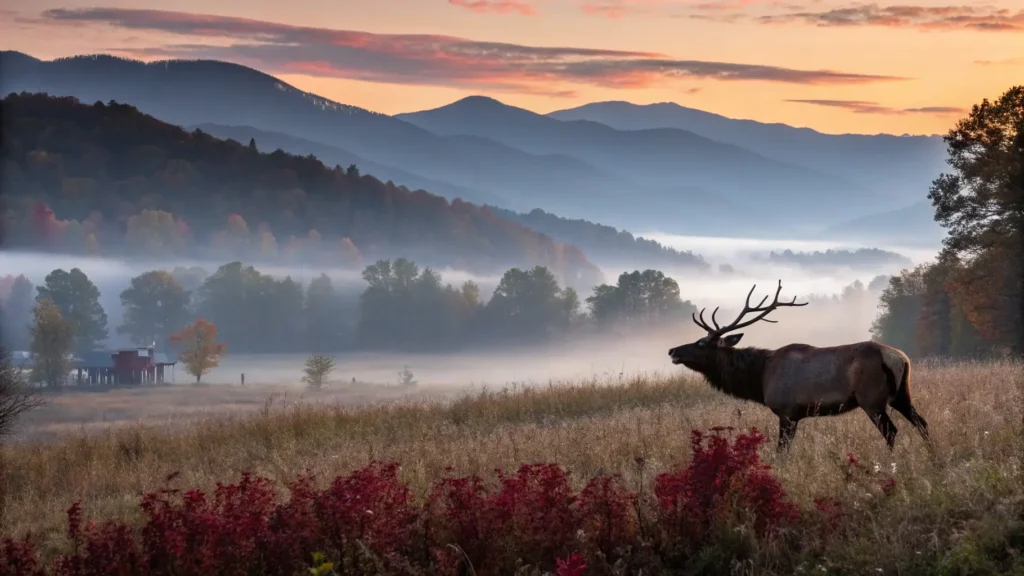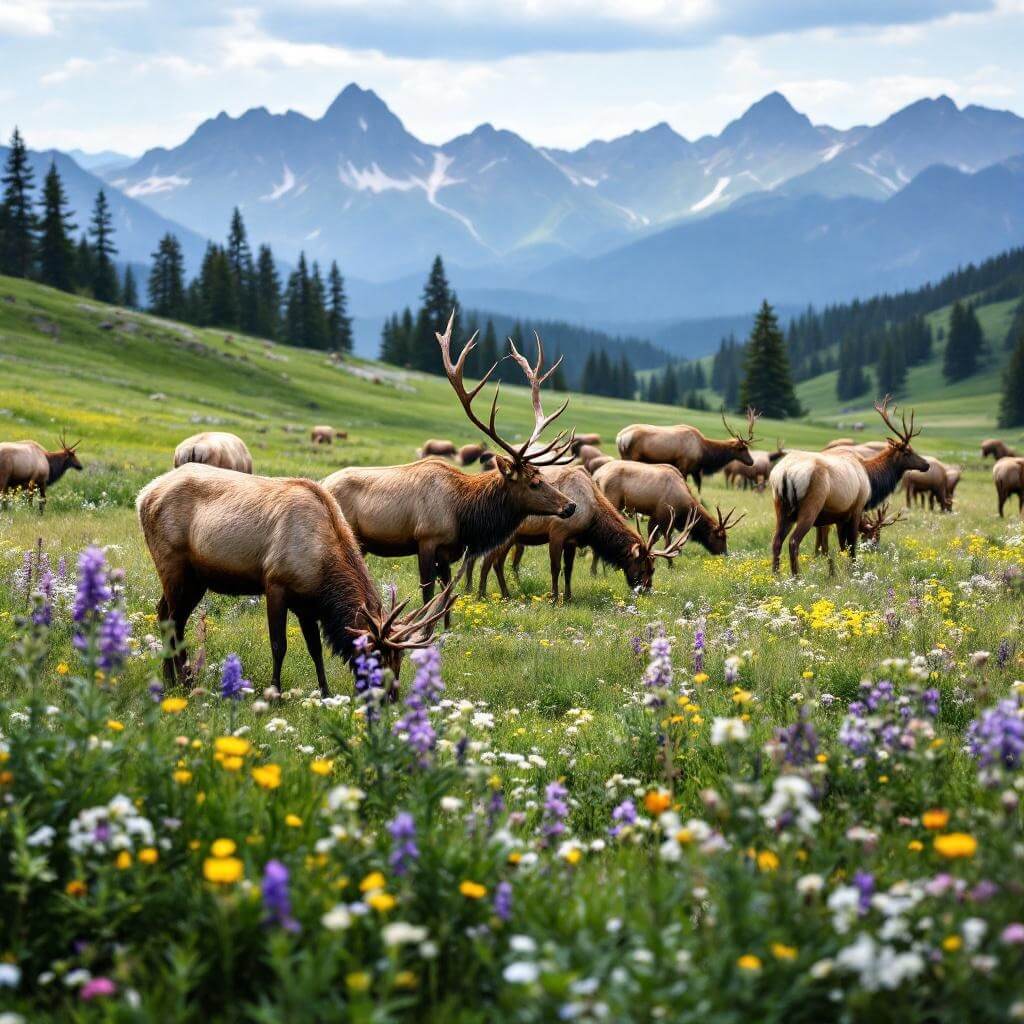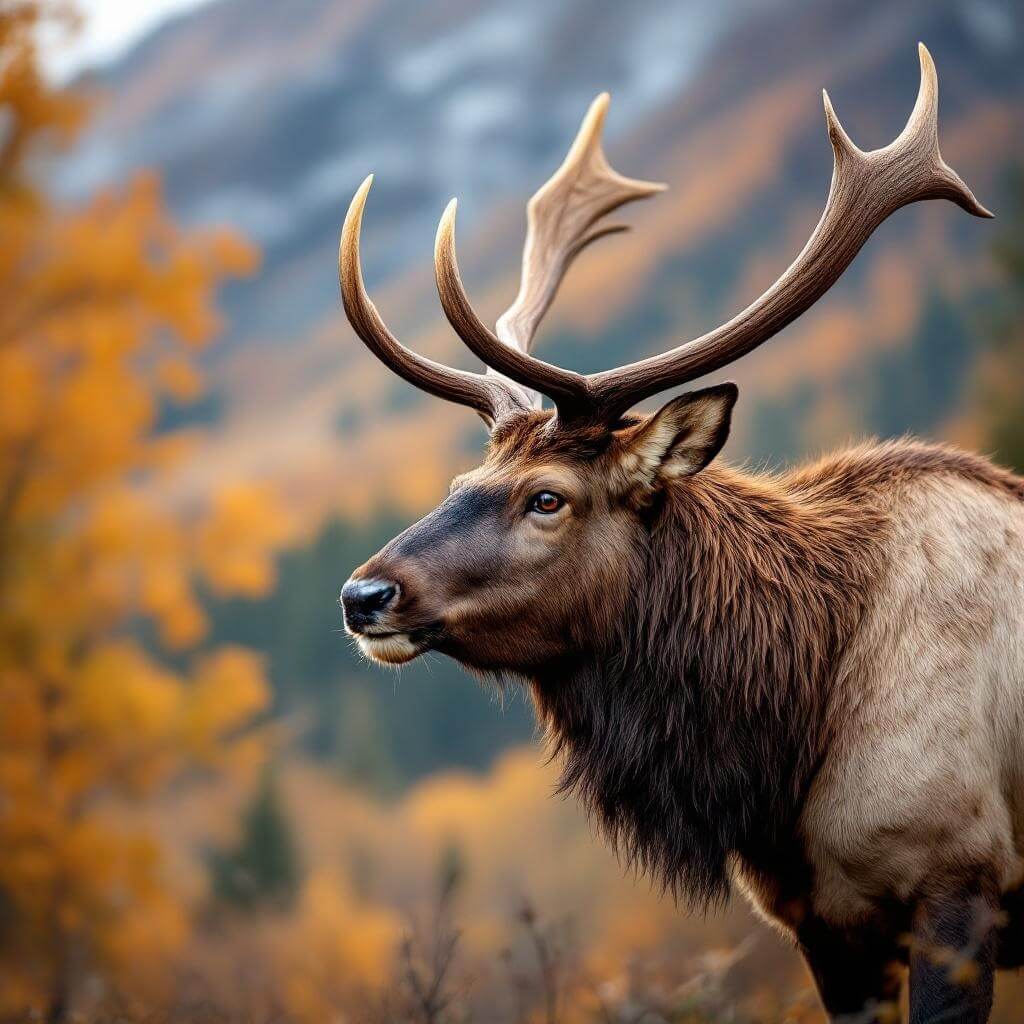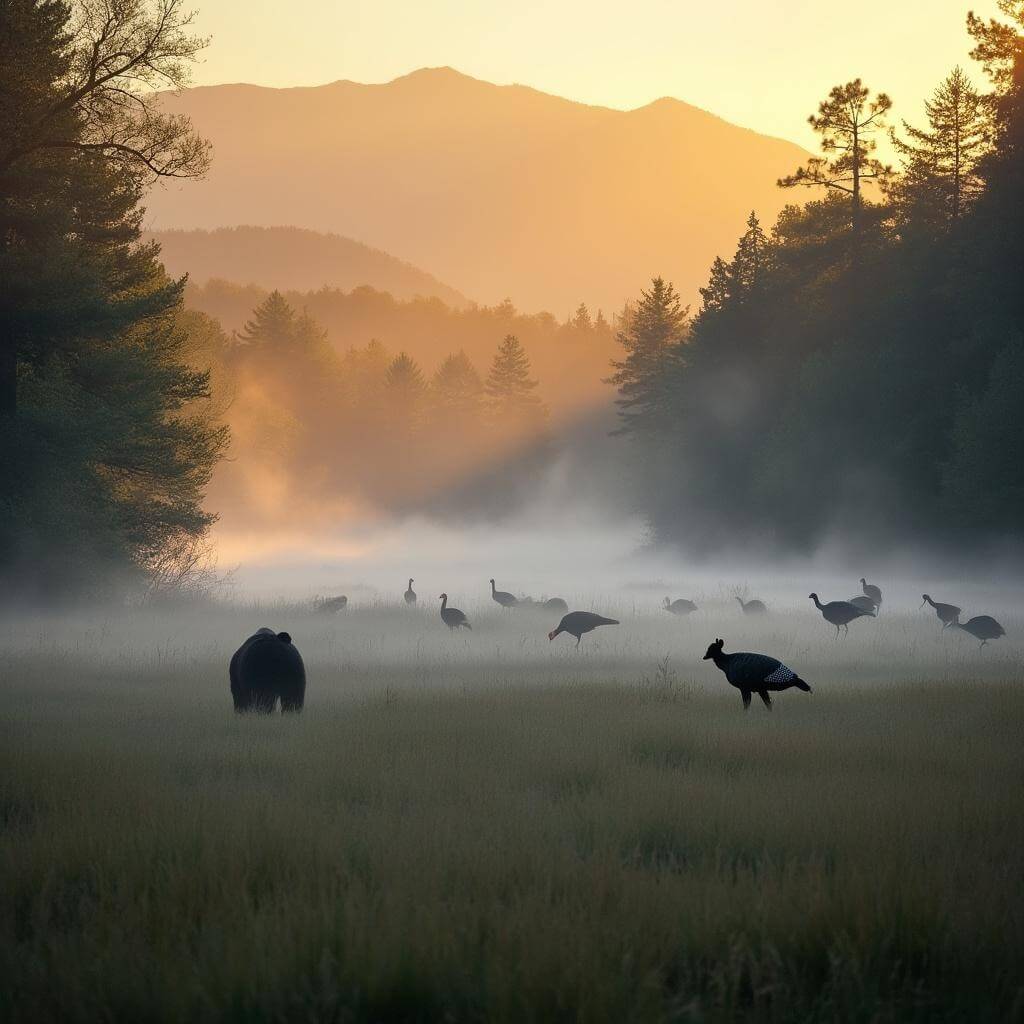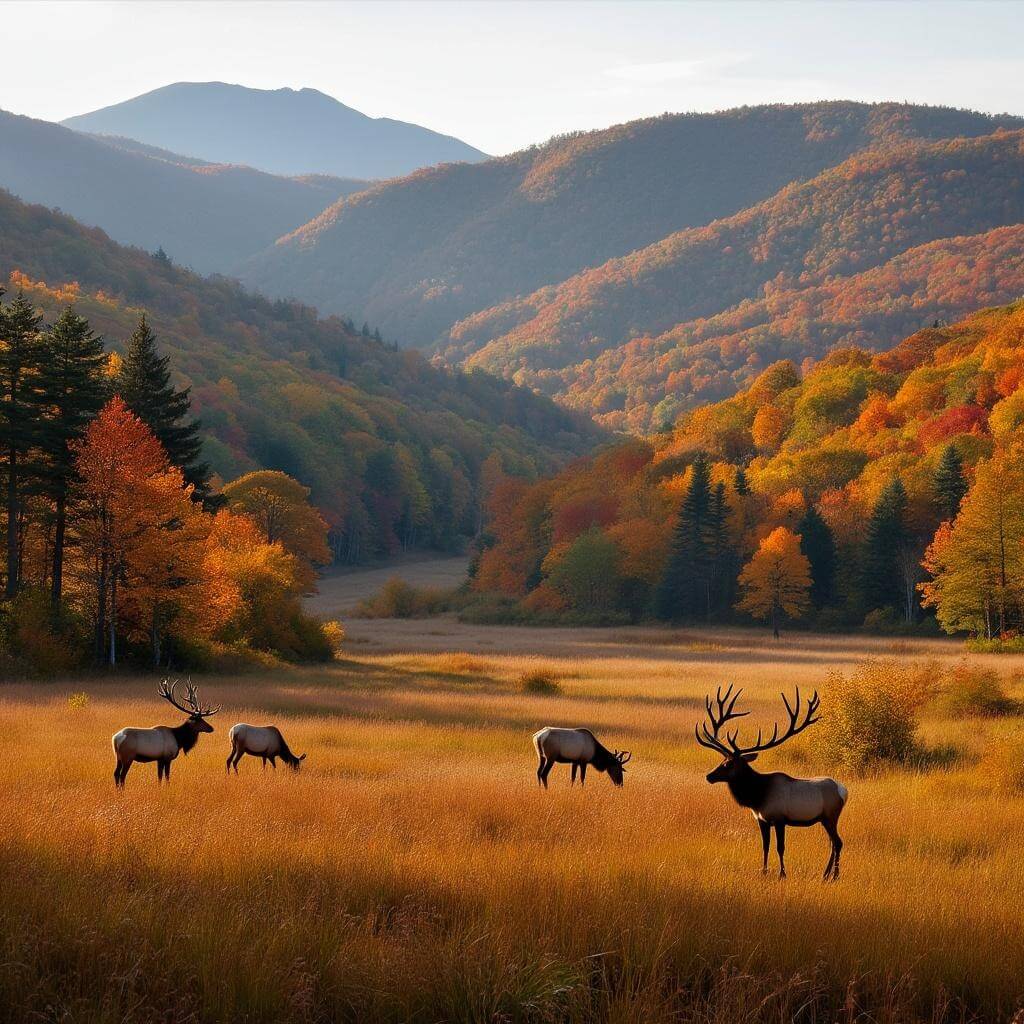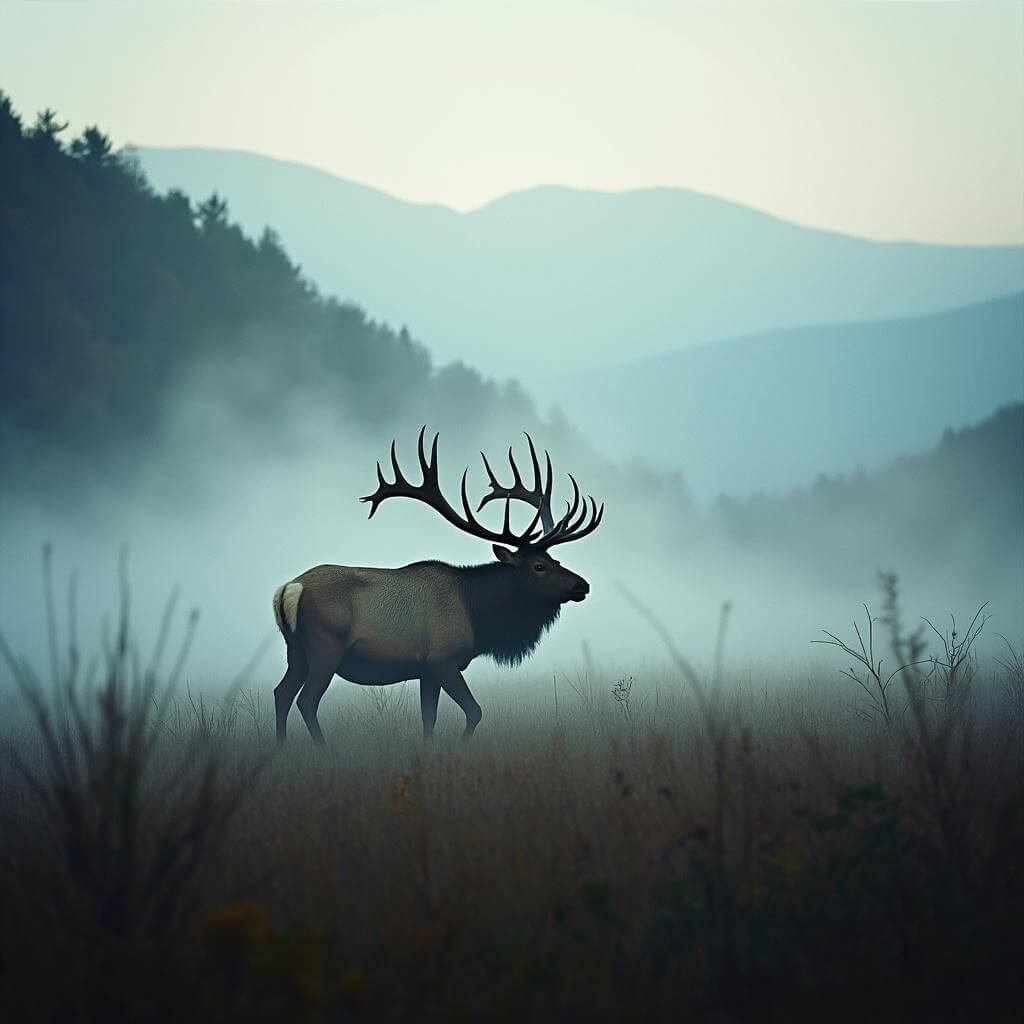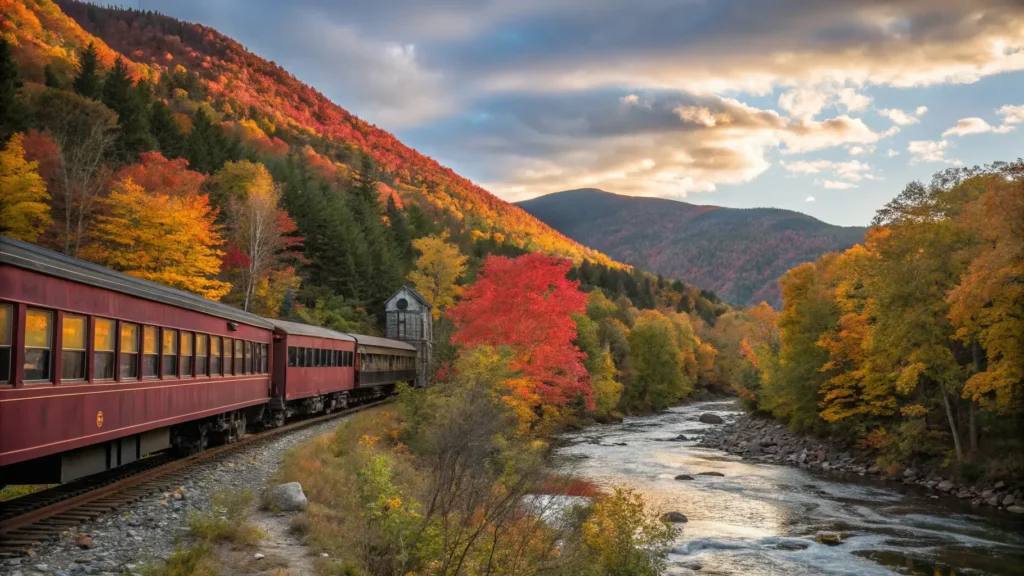Have you ever dreamed of watching majestic elk roam freely in a pristine mountain valley? Cataloochee Valley in the Great Smoky Mountains National Park offers exactly that—an extraordinary wildlife encounter that feels like stepping into a living nature documentary.
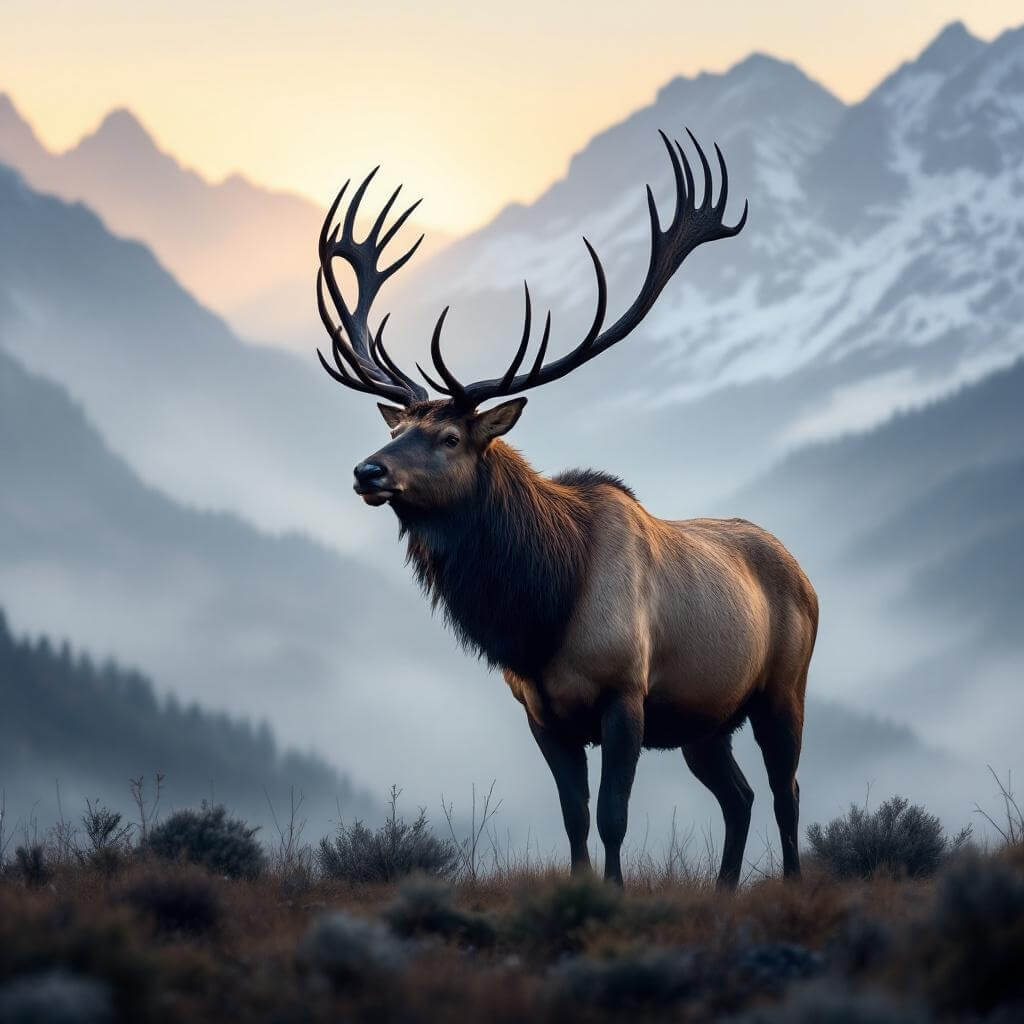
Why Cataloochee Valley is a Wildlife Lover’s Paradise
This remote mountain sanctuary isn’t just another scenic spot. It’s a testament to successful wildlife restoration and conservation. In 2001, biologists reintroduced elk to these mountains after they’d been absent for over 150 years—a bold experiment that transformed the ecosystem.
When I first visited, I remember watching a massive bull elk emerge from morning mist, his antlers silhouetted against ancient mountain ridges. It was like witnessing a piece of lost wilderness being reclaimed.
The Incredible Elk Comeback Story
The elk population here tells an incredible tale of resilience. Starting with just 52 animals in 2001, the herd has now grown to over 200 individuals. This isn’t just a wildlife recovery—it’s an ecological resurrection.
Insider Elk Watching Tips That Actually Work
Want to maximize your chances of an unforgettable elk encounter? Here’s what the pros know:
- Dawn and dusk are your golden hours
- Autumn (late September to early November) brings the most dramatic elk behavior
- Use your vehicle as a mobile blind—elk are surprisingly car-tolerant
- Bring high-quality binoculars, not just your smartphone
Seasonal Elk Behavior: What to Expect
Each season offers a unique elk watching experience:
- Spring: Watch for antler regrowth and newborn calves
- Summer: Elk graze openly in lush meadows
- Fall: The legendary rut season—bull elk bugle and spar dramatically
- Winter: Herds concentrate in lower valleys, offering concentrated viewing opportunities
Safety and Respect: Your Wildlife Viewing Commandments
Wild elk are powerful animals. Respect means survival—for both you and the elk:
- Stay at least 50 yards away
- Never approach or feed elk
- Use vehicles as observation platforms
- Move slowly and quietly
- Bring patience, not expectations
Getting There: Your Navigation Survival Guide
Cataloochee isn’t just around the corner. Nestled in the eastern Great Smoky Mountains, it requires some navigation skills:
- Narrow mountain roads demand careful driving
- Four-wheel drive recommended
- Limited cell service
- Pack essential supplies
Alternative viewing locations include the Oconaluftee Visitor Center and lowland fields near Cherokee—perfect backup plans.
Pro Tip: Viewing Success is About Strategy, Not Luck
Successful wildlife watching isn’t random. It’s about understanding animal behavior, choosing the right time and place, and respecting nature’s rhythms.
The elk of Cataloochee have a story that extends far beyond mere animal migration. They represent hope—a living example of how careful conservation can resurrect lost ecosystems.
As the morning mist began to lift during my last visit, a young elk calf pranced beside its mother, symbolizing continued renewal. This isn’t just wildlife watching—it’s witnessing nature’s remarkable resilience.
The mountains were calling, and the elk were answering—a symphony of wilderness waiting to be experienced.
Beyond Elk: The Rich Ecosystem of Cataloochee Valley
Wildlife doesn’t exist in isolation. The elk are just one spectacular thread in a complex ecological tapestry.
During my last expedition, I watched a black bear lumber through a distant meadow while wild turkeys pecked at the forest’s edge. This wasn’t just an elk experience—it was a full immersion into Appalachian wilderness.
The valley hosts an incredible diversity of wildlife:
- Black bears (approximately 1,500 in the Great Smoky Mountains)
- White-tailed deer populations
- Over 65 mammal species
- More than 200 bird species
- Diverse amphibian and reptile communities
Conservation: More Than Just Counting Elk
Reintroduction isn’t a simple numbers game. It’s about restoring ecological balance.
The elk program represents a sophisticated approach to landscape management:
- Controlled grazing helps maintain meadow ecosystems
- Supports native plant regeneration
- Creates habitat complexity for other species
- Generates economic opportunities for local communities
Practical Preparation: What to Pack, What to Know
Every successful wildlife adventure starts with intelligent preparation.
Essential Gear Checklist:
- High-quality binoculars (10x magnification recommended)
- Weather-appropriate layered clothing
- Sturdy hiking boots
- Compact first-aid kit
- Refillable water bottle
- Lightweight, neutral-colored clothing
- Compact field guide
- Portable charger
- Patience and quiet demeanor
The Hidden Challenges of Wildlife Tourism
Responsible viewing requires understanding complex ecological dynamics.
Key Considerations:
- Minimal human intervention preserves natural behaviors
- Seasonal migrations and breeding patterns influence visibility
- Weather dramatically impacts wildlife movement
- Park regulations protect both animals and visitors
Technology Meets Nature: Modern Elk Tracking
Park rangers now use sophisticated monitoring techniques:
- GPS tracking of individual elk
- Population genetic diversity studies
- Annual health assessments
- Migration pattern analysis
Your Personal Wildlife Legacy
Every visitor becomes part of the conservation story.
By choosing responsible tourism, you:
- Support ongoing research
- Fund habitat preservation
- Educate future generations
- Directly contribute to wildlife management
Planning Your Expedition: Final Recommendations
Pro Tips for Maximum Elk Encounter Success:
- Visit during shoulder seasons (late spring/early fall)
- Allow minimum 2-3 days for optimal viewing
- Check park websites for current conditions
- Consider guided ranger programs
- Remain flexible with expectations
For more detailed guidance, check out the Complete Guide to Elk Watching in Cataloochee Valley and Essential Tips for Viewing Wild Elk in the Great Smoky Mountains.
The Unexpected Magic of Patient Observation
Wildlife doesn’t perform on command. The most extraordinary moments emerge when you surrender to nature’s rhythm.
I once spent four silent hours in a meadow, nearly motionless. Just as I was about to leave, a magnificent bull elk materialized from morning mist—a moment of pure, unscripted wilderness.
Your Invitation to Wild Discovery
Cataloochee Valley isn’t just a destination. It’s a living, breathing testament to nature’s resilience and beauty.
Will you answer the mountains’ call? Your wild elk adventure awaits in North Carolina’s most incredible wildlife sanctuary.
Bonus Tip:
Wrap up your day with an outdoor-inspired meal. Try this Savory Dutch Oven Chicken Stew or Hearty Beef Stew with Vegetables—perfect for warming up after a long day of wildlife viewing.

